-
Global dialogue on technology for dementia
Thursday 4 March 2021

Co-chaired by Jeremy Hughes and Vaibhav Narayan, this global dialogue explored technology in prevention and the maintenance of brain health, technology to maintain and improve daily function, and technology that assists in the provision of patient-centred health and social care. Presenting their thinking on these topics was Dr Amanda Lazar, Professor David Sharp, and Dr Allison Sekuler.
-
Global dialogue on clinical trials
Tuesday 9 March 2021

Co-chaired by Dr Maria Carrillo and Professor Philip Scheltens, this global dialogue was a follow up to the first which convened in November 2020. Professor Jeffrey Cummings introduced thoughts on the challenges and progress in clinical trials, and brief reflections were given from Dr Mark Mintun on Eli Lilly's Donanemab trial as an exemplar of the evolving design of clinical trials.
-
Global dialogue on prevention
Tuesday 9 February 2021

Co-chaired by Professor Kaarin Anstey and Professor Philippe Amouyel, this global dialogue examined the evidence base for dementia prevention programmes and some of the current research happening in the field, prevention programmes and their practical implementation, as well as some of the lessons from other public health initiatives. Professor Carol Brayne, Dr Michele Cecchini and Dr Yoshiki Niimi presented their thinking ahead of an open discussion.
-
Global dialogue on care
Friday 5 February 2021

Co-chaired by Professor Brian Lawlor and Paul Hogan, this global dialogue covered progress made in the field of care and the challenges that remain, exploring models of care, the burden of caregivers, and art and music in dementia. Professor Felicity Barker, Professor Louise Robinson, Professor Mary Sano and Dr Samir Sinha presented their thinking ahead of an open discussion.
-
Global dialogue on biomarkers and treatments
Wednesday 18 November 2020

Co-chaired by Dr Maria Carrillo and Professor Philip Scheltens, this global dialogue covered two themes selected based on their importance in the field: early detection and biomarkers; and advances in treatment. Speakers included Professor Oskar Hansson, Dr Cath Mummery, Dr Eric Siemers and Professor Reisa Sperling.
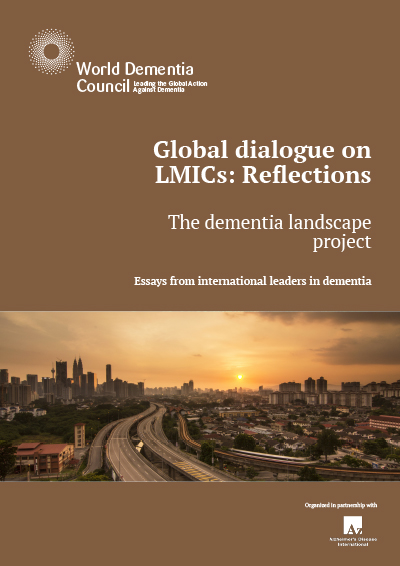
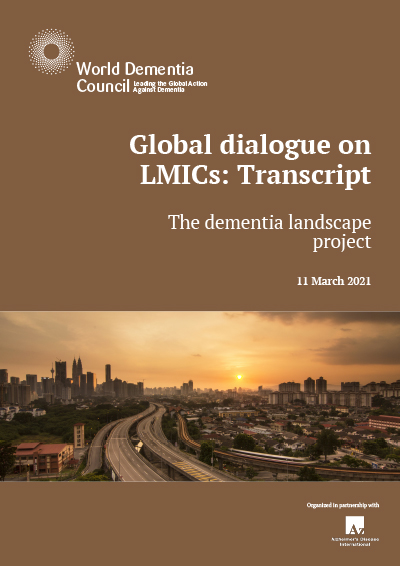
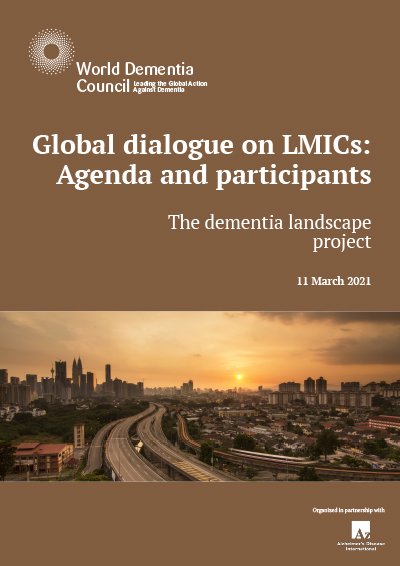
The low- and middle-income countries (LMICs) global dialogue focused on the challenges for people living with dementia and their caregivers in developing nations how the international community can help to accelerate progress towards overcoming them. It was co-chaired by Meera Pattabiraman, chair of the Alzheimer’s and Related Disorders Society of India and member of the World Dementia Council and Paola Barbarino, CEO of Alzheimer’s Disease International and member of the World Dementia Council.
Thursday 11 March 2021
Virtual meeting

Co-chairs
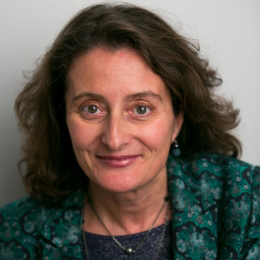 Paola Barbarino
Paola Barbarino
Paola is the CEO of Alzheimer’s Disease International. Prior to that, she was CEO of LIFE. Her previous senior positions include Cass Business School, Tate, British Library and IIED. She is a Trustee of The Postal Museum and Lauderdale House. Previously she was a Trustee of Shelter, the UK housing and homelessness charity and of MLA London. She is also the Managing Director of Opaline Limited, a consultancy company specializing in strategy and governance. She holds a degree cum laude in Classics from the University of Napoli Federico II, an MA in Field and Analytical Techniques in Archaeology and an MA in Library and Information Science both from University College London.
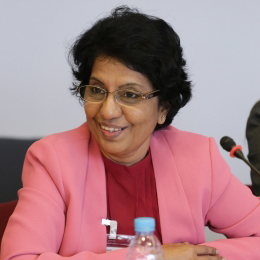 Meera Pattabiraman
Meera Pattabiraman
Meera Pattabiraman is Chair of the Alzheimer’s and Related Disorders Society of India (ARDSI). She has been working in the field of dementia care, management and advocacy for the past 18 years. A post graduate in business administration, she entered the field of social work and dementia care because of her personal experience of being a carer for her father who had Alzheimer’s disease. Meera Pattabiraman was part of the editorial board that produced the India Dementia Report in 2010, which is now used by the Ministry of Health and the Ministry of Social Justice and Empowerment as the reference guide in all matters relating to dementia. She is also part of the national think tank to develop better healthcare for the elderly and has taken part in national health policy meetings.

Presenters
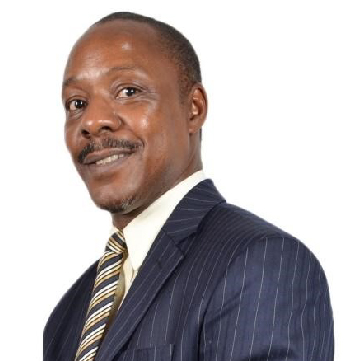 Dr Paul Kiwanuka-Mukiibi
Dr Paul Kiwanuka-Mukiibi
Paul Kiwanuka-Mukiibi is the Executive Director of the Uganda Alzheimer Association, of which he is also a founder Board member and the General Secretary. Until he took on his current role, he was Managing Director and Principal Consultant of PS Consulting (PSC), a health development consultancy firm he founded two decades ago. He is a research and policy specialist who has provided technical assistance to the Uganda Ministry of Health (MoH) and other line-ministries; national health programmes funded by Development Partners/Donors including the WHO, World Bank, USAID, UKAID/DfID, DANIDA, KfW, AusAID and Irish Aid, amongst others; other ministries of health, international and local NGOs throughout the region; and private health-sector organisations.
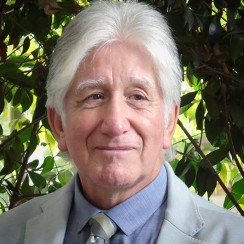 Professor Francisco Lopera
Professor Francisco Lopera
Francisco Lopera is full professor and Director of the “Grupo de Neurociencias de Antioquia” (GNA) at University of Antioquia in Medellín, Colombia. The GNA works in basic and clinical neurosciences, in developmental and neurodegenerative disorders. As a Behavioral Neurologist Lopera Works at the Department of Internal Medicine, Clinical Neurology Service at Medical School of the Antioquia University, He plays an active role in assisting patients with Alzheimer’s Disease, CADASIL, Parkinson disease, Huntington disease, Mild cognitive impairment, Fronto-temporal dementia, and other forms of dementias. Lopera has been working with a large groups of families with Familiar Alzheimer´s Disease due to a PSEN1 mutation (E280A) for over 30 years. He is the Principal Investigator in Colombia in Alzheimer Prevention Iniciative program (API COLOMBIA) in collaboration with Banner Health Institute and Genentech/Roche.
Dr Vijayalakshmi Ravindranath
Dr. Vijayalakshmi Ravindranath obtained her Ph.D from the University of Mysore in 1981. In 1986, after completing her post-doctoral training at the National Institutes of Health, USA, she joined the Department of Neurochemistry at National Institute of Mental Health and Neurosciences, (NIMHANS) Bangalore. In 1999, the Dept. of Biotechnology (DBT), Government of India sought her out to help establish the National Brain Research Centre (NBRC), an autonomous institution of DBT, Ministry of Science and Technology as a centre of excellence and to co-ordinate and network neuroscience research groups in the country. She continued as Founder Director, NBRC till May 2009, when she returned to Bangalore at the Indian Institute of Science (IISc) as Professor and Founder Chair of the newly created Centre for Neuroscience. She is currently Founder Director, Centre for Brain Research (CBR) at Indian Institute of Science.

Other events in the series
To inform the dementia landscape report, the Council has hosted virtual workshops for international dementia leaders focusing on key themes of research, care and prevention that were identified at the London dementia summit in 2013. In addition, the Council has also hosted smaller roundtables that focused on additional key themes and new policy priorities that we have agreed to highlight in the report, including data sharing and dementia registries, and the impact of dementia on low- and middle-income countries. See more below.